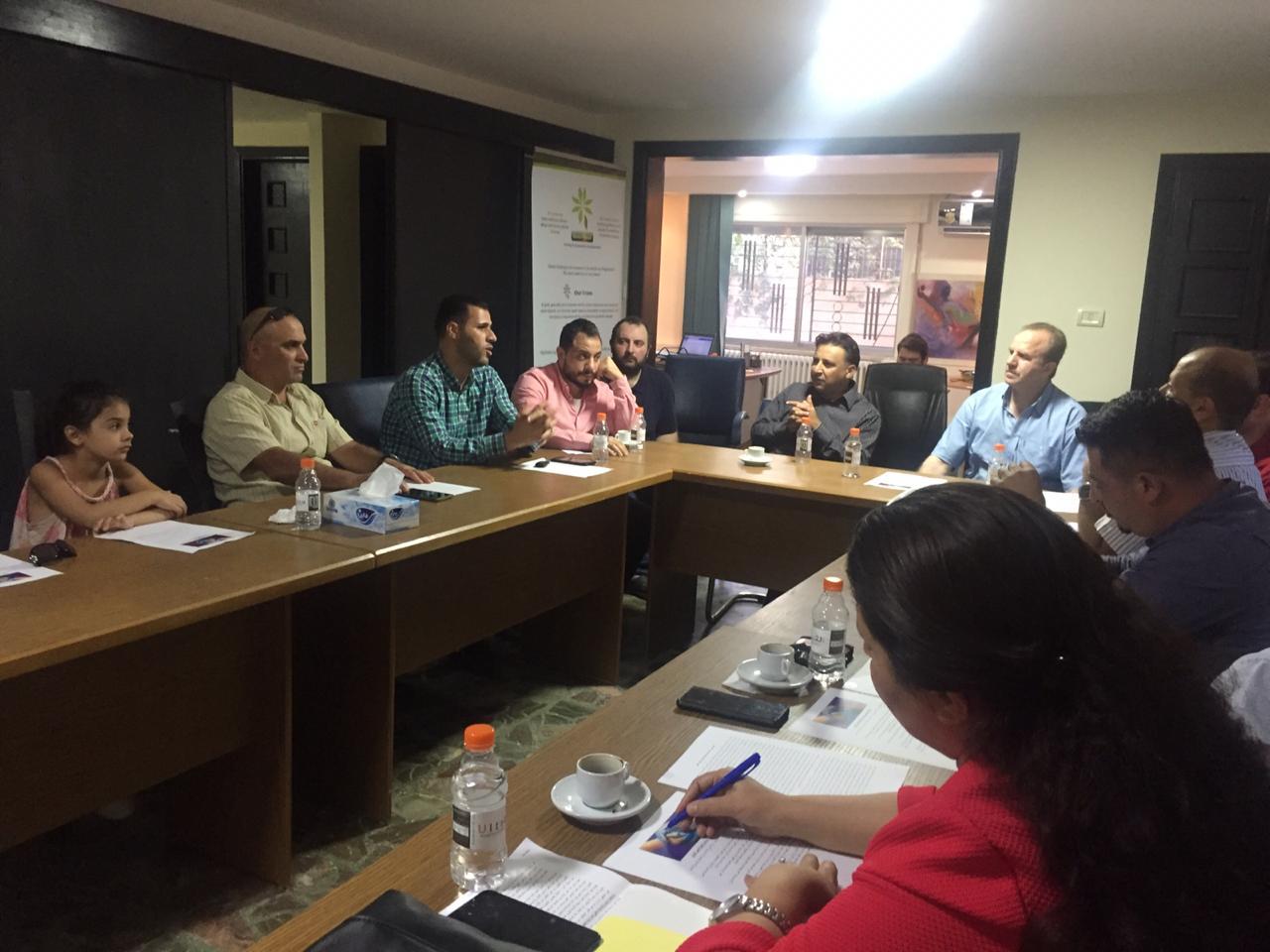URI MENA Office, in cooperation with Desert Bloom, Naya and Mercy CCs honoured the International Day of Peace by organizing an interactive workshop on “Our earth urges you to become a peacebuilder – Stories from religious traditions.”
The Muslim Imam highlighted that environmental awareness and protection of natural resources is an integral part of Islamic beliefs. As viceroys of Allah on this earth, we have to utilize natural resources in a sustainable manner in order to ensure that Allah’s Bounties continue. Therefore, Islamic attitude towards the environment and natural resource conservation is not only based on the prohibition of over-exploitation but also on sustainable development. The Holy Quran says:
“O children of Adam! … eat and drink: but waste not by excess, for Allah loves not the wasters.” (Surah 7:31).
Prophet Muhammad (SAW) encouraged the planting of trees and the cultivation of agriculture which are considered good acts. He said: “There is none amongst the Muslims who plants a tree or sows seeds, and then a bird, or a person or an animal eats from it, but is regarded as a charitable gift for him.”
The Imam explained how Islamic teachings urge us to take care of everything around us, whether it is natural resources (soil, vegetation, animals, air, water, mineral resources…etc.) or man-made things.
The Baha’i speakers presented a paper on “Seizing the Opportunity: Redefining the challenge of climate change,” reviewing the global initiatives and attempts to sustain peace since World War One. They highlighted the failures of global efforts in achieving peace and sustaining resources. Therefore, it is time to seize the opportunity and take the next step in the transition from a state-centred model of interacting on the world stage to one rooted in the unity which connects us as the inhabitants of one biosphere, the citizens of one world and the members of one human civilization. The nature of this step, its significance and some of the means for its accomplishment are the focus of the Baha’i International Community’s contribution to forging a path out of the climate change challenge.
To contribute to this important discourse, we assert that the principle of the oneness of humankind must become the ruling principle of international life. This principle does not seek to undermine national autonomy or suppress cultural or intellectual diversity. Rather, it makes it possible to view the climate change challenge through a new lens – one that perceives humanity as a unified whole, not unlike the cells of the human body, infinitely differentiated in form and function yet united in a common purpose which exceeds that of its component parts. This principle constitutes more than a call for cooperation; it seeks to remould anachronistic and unjust patterns of human interaction in a manner that reflects the relationships that bind us as members of one human race. and resources stemming from the belief of the oneness of mankind.
The Christian speaker highlighted the fact that Adam was a special creation of God made from the dust of the earth, and then the breath of God in which the spirit of life and man became a living being. Environmental peacemaking is based on the principle of our shared dependence on natural, environmental and health resources that facilitate cooperation between communities and nations and thus enable us to promote peacemaking.
The concept of environmental peacemaking is based on three pillars of sustainable development: economic sustainability, social and cultural sustainability and environmental sustainability.
As is the case in other religions, the Christian religion stated the religious culture of preserving the environment as follows:
The Old Testament of the Bible: “The skies of heaven for the Lord and the earth made it for the people of man.”
Pope John Paul II sent a message in which he said that respect for the environment is a manifestation of human respect for the Creator. Therefore, he considered that the destruction of man to nature is the bullying of the Creator.
In conclusion, one must learn that the earth cannot renew itself with its wealth, riches and tenders forever while consuming it without calculation. Collective action is essential to keep the earth from religious, social, moral and economic collapse.
After the speeches, the participants shared their ideas about how to become a promoter for peace and a protector of nature. As an action plan, the participants agreed to clean a natural rural forest and to visit an Ecovillage to promote ecotourism.
Here are some photos from the event are on our Facebook page https://web.facebook.com/mena.uri/
